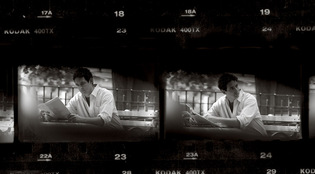 loading
loading
featuresSpymastersOne took classes from the FBI. One worked at the CIA. One embedded in Iraq. You thought writing thrillers was easy? Alex Beam ’75 is the author of, most recently, A Great Idea at the Time: The Rise, Fall, and Curious Afterlife of the Great Books.  Mark OstowSurveillance, July 2011: Alex Berenson, New York City. View full image
Yale has a famous, or notorious, kinship with espionage. Richard Bissell ’32, ’39PhD, helped mastermind the botched 1961 Bay of Pigs invasion of Cuba for the Central Intelligence Agency. Yale’s legendary chaplain of anti–Vietnam War protest, William Sloane Coffin ’49, ’56BD, toiled for both the Agency and its precursor, the Office of Strategic Services. William F. Buckley Jr. ’50, best known for his punditry in print and on television, briefly plied the spy trade in Mexico. In his book Cloak and Gown: Scholars in the Secret War, 1939–1961, the late Yale historian Robin Winks reported that at least 42 members of the Class of 1943 joined the spy biz. The wartime OSS was so freighted with Yalies, according to Winks, that on festive occasions the “Whiffenpoof Song” could be heard in its faraway outposts. Yalies of a certain age say they remember the CIA’s recruiting office, housed in the US Post Office building in downtown New Haven. “The door was marked only with a number,” recalls a member of the Class of 1966, “and inside, Mr. Brown waited to talk to you.” Yale and its Ivy League counterparts, as far as a private citizen can tell, have been sending fewer graduates into intelligence work of late. But there’s always the related trade of literary spycraft. Buckley dabbled in it, with 11 novels featuring the fictional spook Blackford Oakes (Yale Class of ’51, of course). Three alumni have made successful careers in the genre. Alex Berenson ’94 has focused his five novels on the CIA’s war against Islamic terrorists—with a twist: his protagonist is an American Muslim. Joseph Weisberg ’87, the only one of the three who was once a real-life spook, has fictionalized the glamourless, unsexy lives of latter-day James Bonds; he’s now a TV screenwriter working on a series about Russian spies living in America. Joseph Finder ’80, who started out with a Cold War spy yarn, has retooled himself as a creator of best-selling corporate espionage thrillers. This is, after all, a university whose most celebrated eighteenth-century graduate—Nathan Hale, Class of 1773—was a spy.
|
|